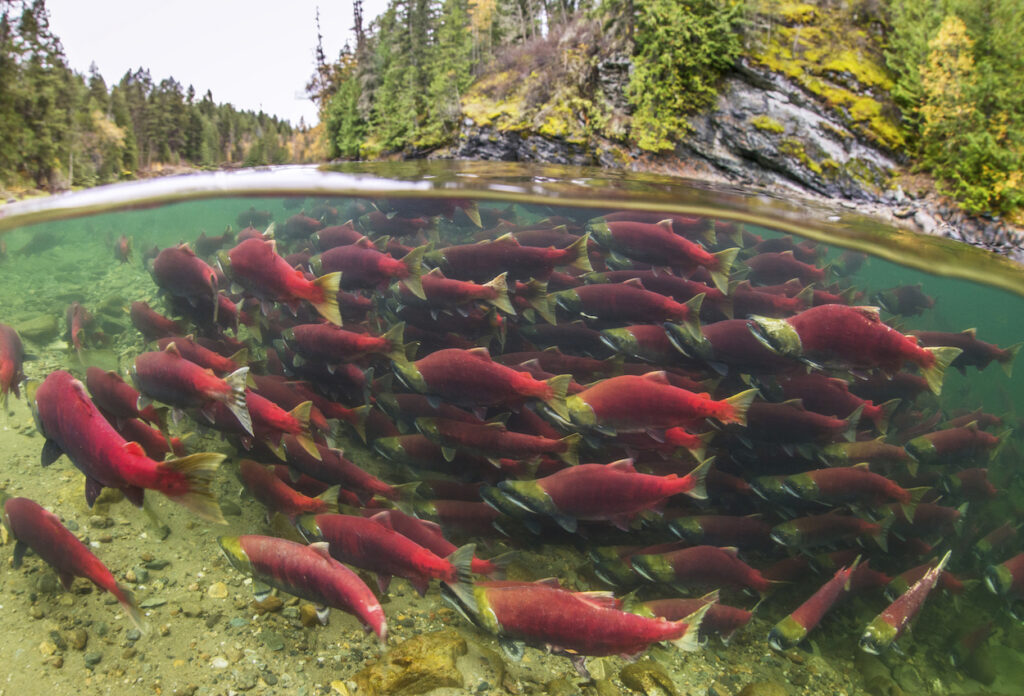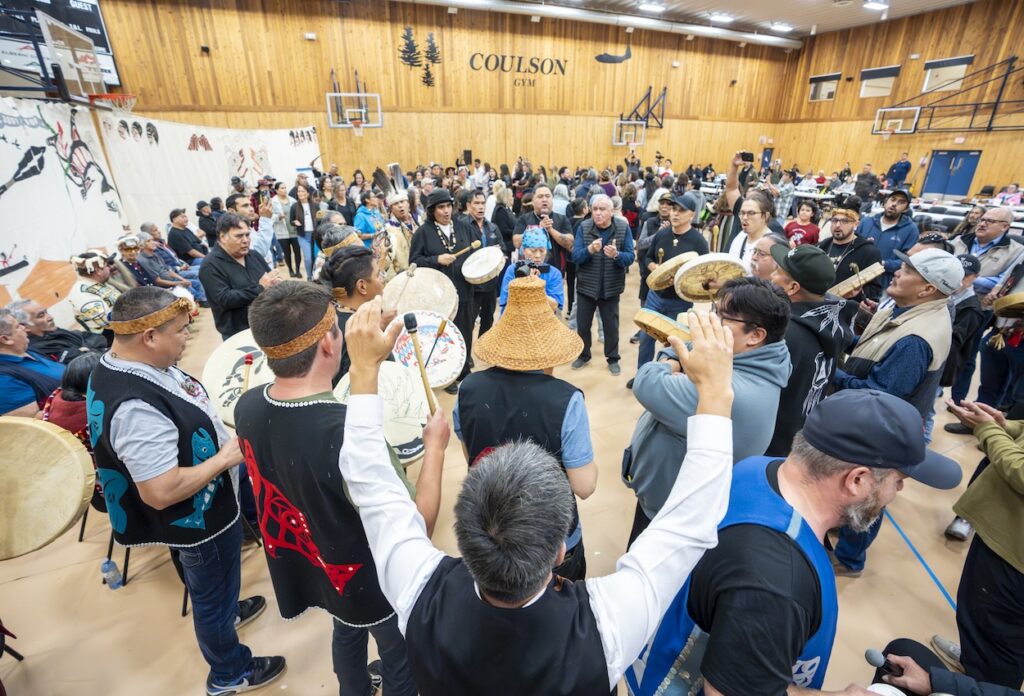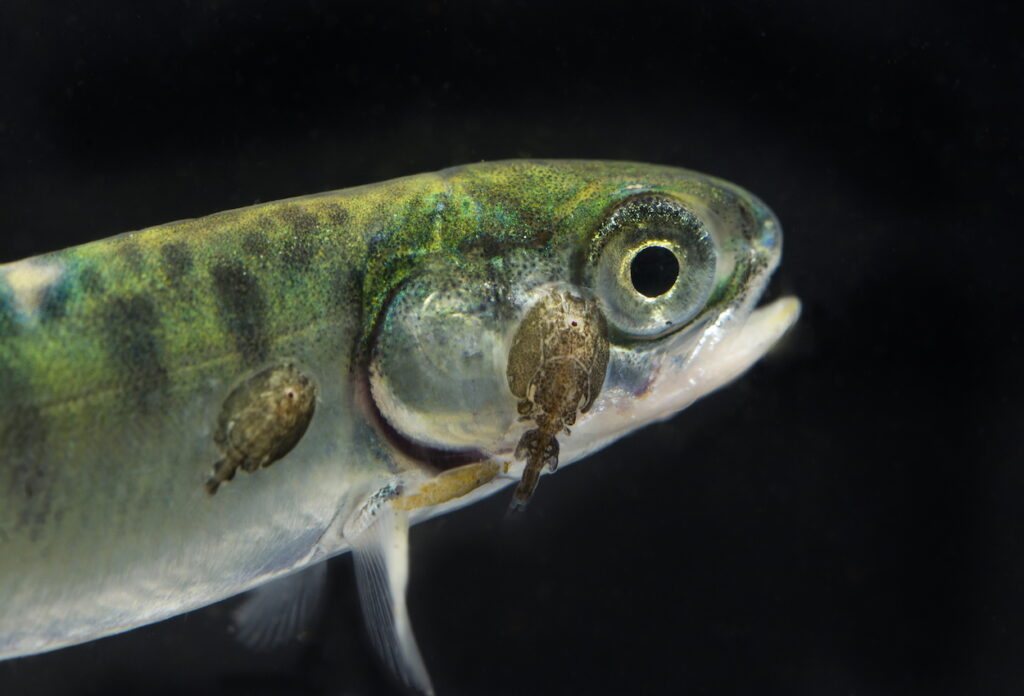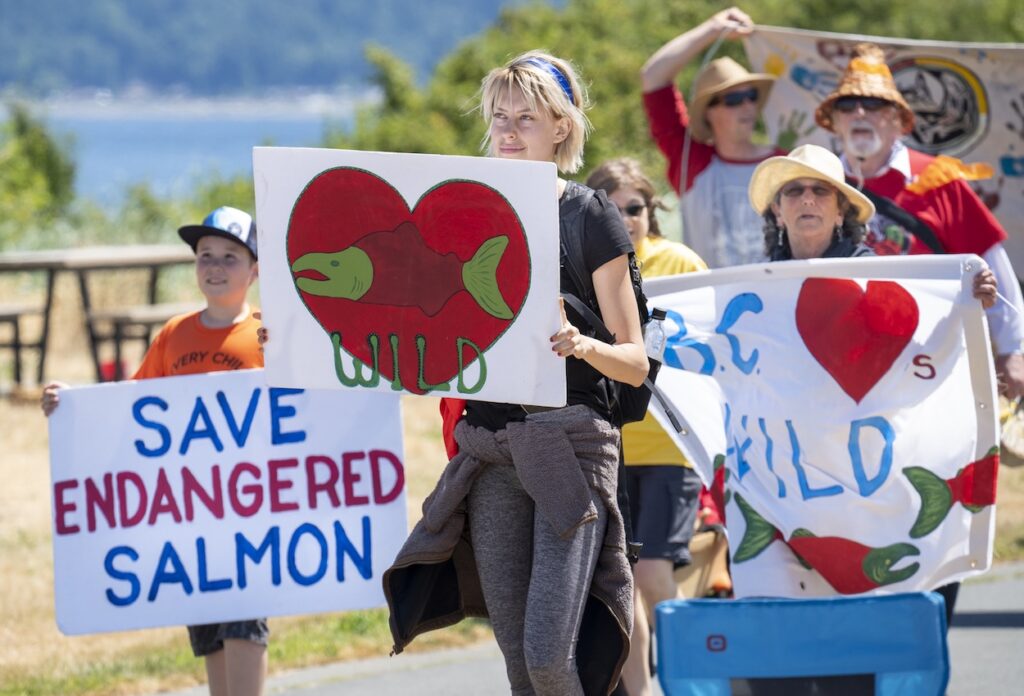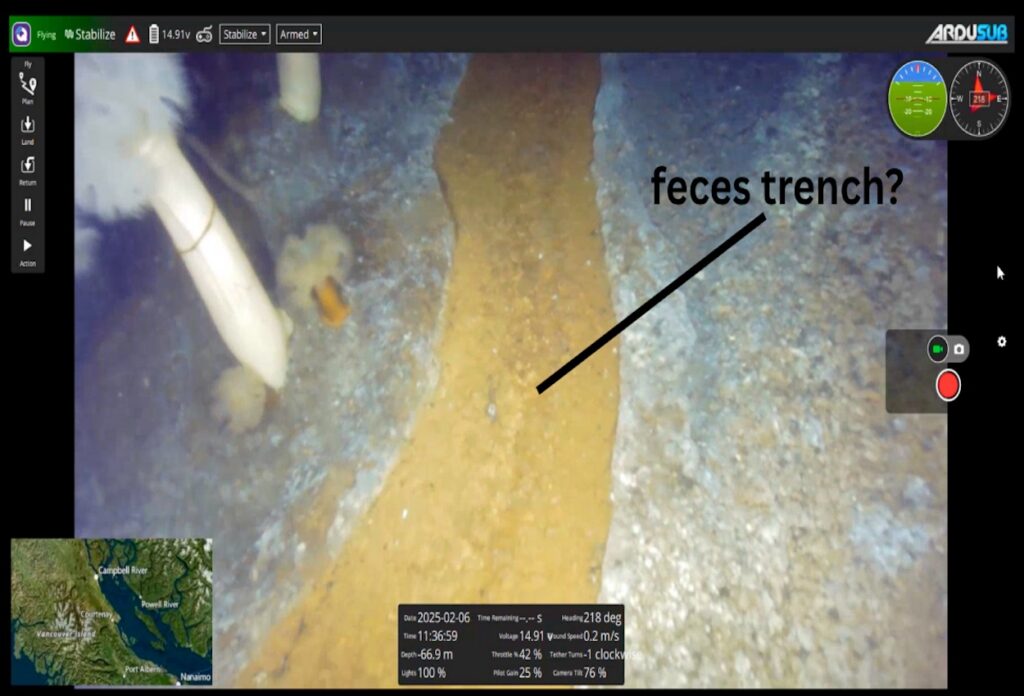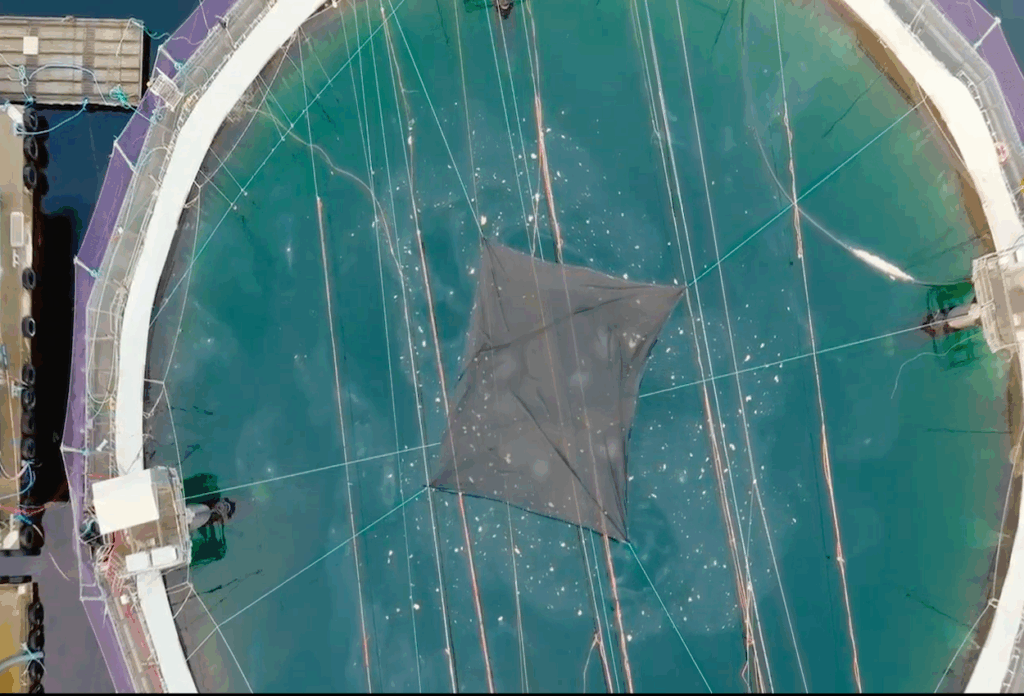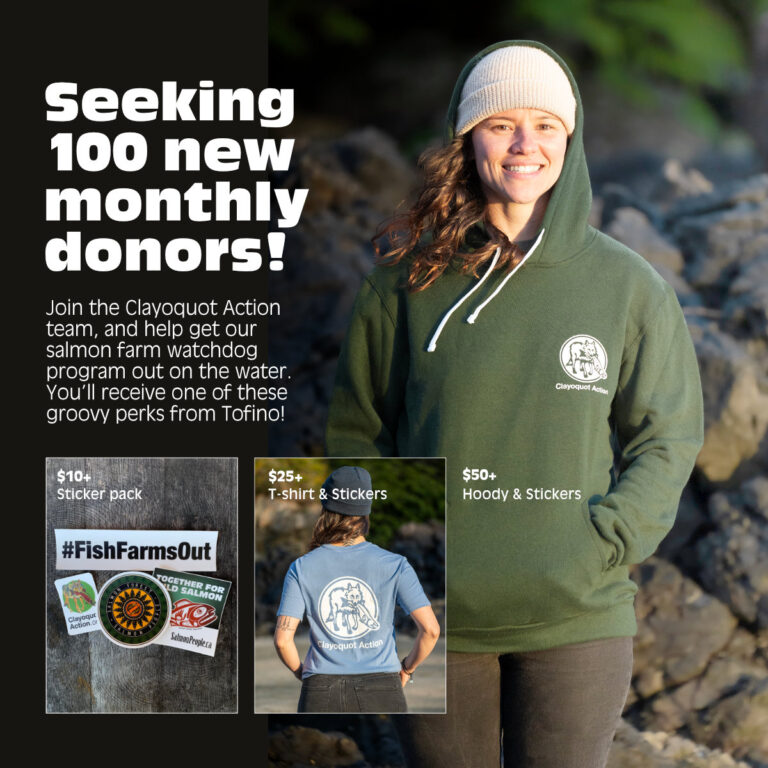Cermaq is experiencing a mass die-off at three of their salmon farm operations in the Clayoquot Sound UNESCO Biosphere Region, north of Tofino, British Columbia, in the territory of Ahousaht First Nations.
On Thursday November 14 at 9pm, Cermaq was observed loading three empty bio-waste trailers onto a barge and heading off into the stormy night. At the same time, three fully loaded bio-waste trailers left Tofino.
A Clayoquot Action team on Friday found dive crews at work, and bio-waste trailers being loaded with dead fish, at Cermaq’s Binns Island salmon farm near Ahousat. Similar activity was observed at the adjacent Bawden Bay farm.
The Department of Fisheries and Oceans has not yet publicly released the cause of the die-off.
“Impacts from open-net pen salmon farms, whether introduced viruses, sea lice, pesticide use or algae blooms, pose an unacceptable risk to Clayoquot Sound’s historically low wild salmon populations”, said Clayoquot Action campaigner Bonny Glambeck. “Cermaq seems unable to manage their fish health in such a way as to avoid impacts to wild salmon—it’s past time to remove open-net pen salmon farms from Clayoquot Sound”.
Cermaq reported the die-off is happening due to a Harmful Algae Bloom (HAB). HABs are occurring more frequently around the world due to warming ocean temperatures. They are also influenced by nutrient loading from salmon farms— each farm produces the equivalent sewage of a city of 180,000 people. Cermaq has 14 tenures in the Clayoquot Biosphere Region.
If the die-off is being caused by a HAB, there could be several contributing factors, such as viral outbreaks, or pesticide management using chemicals or mechanical washing. Cermaq stated online that the first tool they use to manage die-offs is to “minimize activity on the farm site to help lower any possible stress for our fish”.
Two of the three farms affected (Ross Passage and Bawden Bay) were recently treated with Cermaq’s new Hydrolicer, which pressure washes lice off the farmed salmon. These treatments are known to trigger viral outbreaks and die- offs. According to Cermaq’s public reporting website, the Ross Passage farm is currently over the lice treatment threshold, but Cermaq would be unable to use the Hydrolicer during an algae bloom.
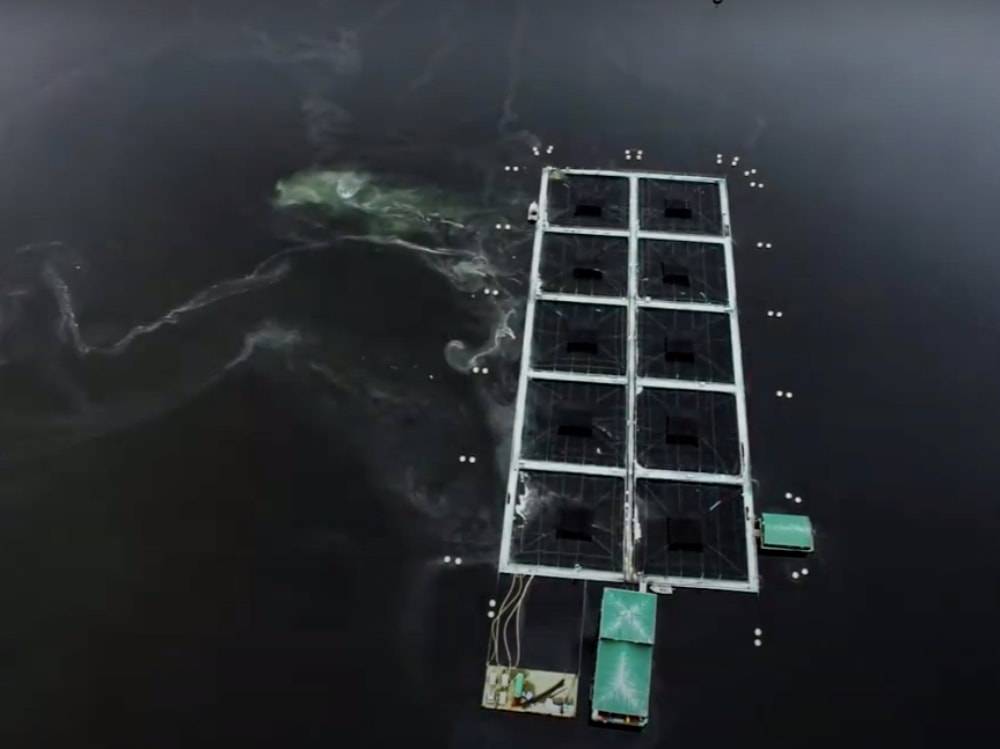
MP Gord Johns (Courtenay-Alberni) is urging the Prime Minister to honour the Liberal campaign promise to remove salmon farms from B.C. waters by 2025. “The Minister of Fisheries and Oceans must be mandated to take all necessary actions to achieve this objective”, said Mr. Johns. “We will be looking for explicit direction on the removal of all open-net pen salmon farms in the Minister’s mandate letter”, he said.
Salmon returns to British Columbia this year—the International Year of the Salmon—are at historic lows. Clayoquot Sound is no exception—local Chinook populations (critical to endangered Southern Resident Killer Whales which visit the region) are on the verge of extinction.
All videos and photos by Clayoquot Action.
Dan Lewis is Executive Director of Clayoquot Action.
